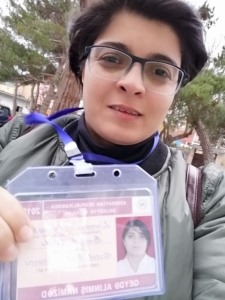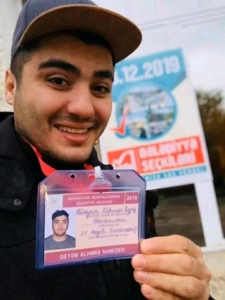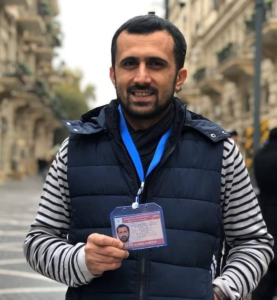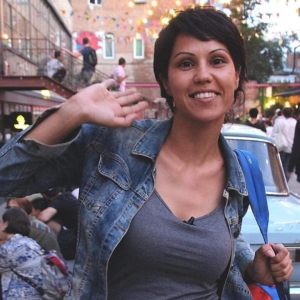Azerbaijan: feminists, former political prisoners announce candidacies in formerly ignored municipal elections
Azerbaijan is preparing for municipal elections. This year promises to be interesting at the very least – feminist activists and former political prisoners are among the candidates.
Why this is important below.
Why’d everyone forget about municipal elections?
Elections to local municipal bodies in Azerbaijan are held every five years, starting in 1999. This year, they will take place on December 23.
Municipal elections in the past have never been a matter of much public interest – even those more interested in politics have barely blinked at them.
Opposition parties have been reluctant to make statements about them and almost never put forward candidates. Usually this was explained by the fact that the rights of municipalities are limited, in contrast to those of state-wide, executive bodies.
However, a careful reads of the Law on the Status of Municipalities suggests that the issue is not an absence of authority, but that in Azerbaijan municipalities do not make use of what’s given them;
The law provides for a wide variety of activities, from conducting opinion polls to forming a local budget and social support programs.
In fact, in most of Azerbaijan, municipalities were associated with narrow paper sheets slipped under the door, with a “last warning” about the housing tax. You can go to the “office”, where in a small room without repair, linoleum replaces the oilcloth on a dry table, and four employees work in a family setting. And it is possible, as most citizens soon found out, to not pay at all, and nothing bad will happen.
However, this year candidates are participating in the municipal elections who do not intend to “just be registered” there.
Too few women

Feminist activist Rabiya Mammadova says that the number of women in the governing bodies of Azerbaijan is negligible: one woman per 80 executive bodies of the country, 20 female MPs in parliament (out of 125 people):
“If I promote the values of gender equality in all spheres of society, then I must act and show by my example how women can participate in the political struggle.”
Rabiya also named another reason for participating: the election institution itself has been destroyed in the country, and citizens simply do not trust this procedure. She wants to restore this trust:
“Municipal elections are a good opportunity to start working with voters, which can finally lead to the fact that citizens will realize that this is their country.”
“Many people in the country know me – why not take a chance?”

Famous Azerbaijani blogger and former political prisoner, Mehman Huseynov, says he wants to directly participate in solving social problems of citizens.
“You all know how elections are held in Azerbaijan: it is not the people who choose, but the authorities. However, now we have social media in our hands. This is an important force, because people do not watch TV channels right now. Many people in the country know me, why not take this chance?
“The people have now been activated and this process should continue. If we can suppress the possibility of election fraud as much as possible, luck will be on our side.
“If it is the other way around, this will be a strong argument in favor of the fact that the reforms, young cadres and other innovations that the authorities are talking about are just a fairy tale. Such a scenario will show that the only way to make a difference is through mass protests. However, I believe that by showing our strength and coordination, we will be able to win at this stage.”
Six equals two

Elgiz Qahraman is an activist of the NIDA movement, also a former political prisoner.
He was a candidate in 2014, and, according to him, during the election he was faced with obvious falsification.
Six members of his family voted for him from one constituency, and the result showed that two people voted.
This year, due to bureaucratic procedures, Elgiz had only two days left to collect signatures (75 people need to sign), but he managed.
Elgiz initially planned to participate in the parliamentary elections, and saw work in the municipality as a chance to work with the population and gain experience.
Why are the municipal elections important to you?

Vafa Nagi is a candidate from the village of Kholgarashigli of the Neftchala region of Azerbaijan.
“When I collected signatures, rural women mockingly asked me: ‘why are the municipal elections important to you?’ In their view, only men can work in municipalities, and it is impossible to change the head of the municipality at all.
“Instead of being an observer, I decided to directly participate in the elections and show a new model of women’s behavior.”
She already has reasons for optimism: “People in the village say that this time they will go and vote.”
Vafa Nagi sees a problem in the lack of jobs for women and vows to help them in this regard.

This project is funded through the Democracy Commission Small Grants Program, U.S. Embassy Tbilisi. The contents of this publication are those of the Author(s) and do not necessarily represent the views of the Department of State.



















